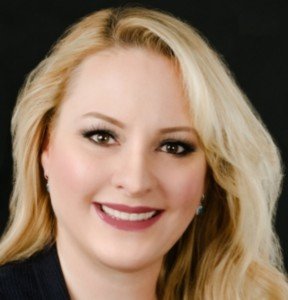If your child was not invited to a classmate’s birthday party, does this make the classmate a bully?
Or perhaps your own child wants to exclude a classmate, and you’re wondering if this makes him or her a bully — or, to put it another way – mean and insensitive.
“Bullying is a term that gets used very frequently in today’s society; however, it’s often misused and misinterpreted,” begins Dr. Tia Kern-Butler, a licensed psychologist for over 20 years who treats a broad range of issues including relationship problems and behavioral issues of children and adolescents.
“Being rude or mean does not in itself constitute bullying,” continues Dr. Kern-Butler.
“Bullying is behavior toward another individual that is intended to intimidate, harm, take advantage of, demean or coerce. The intention is a very important part; the behavior is purposeful.
“Inviting five of your close friends in your classroom to your birthday party is not a behavior intended to intimidate, hurt, take advantage of, demean or coerce.
“Not every child in a classroom is going to be friends — and that is normal.”
What about when a child invites the whole class to a party except one kid?

Freepik.com
Dr. Kern-Butler points out that “the question here again is intent…why not that one child?
“In some cases (as with older children) it might be intentional to leave that one child out for the purpose of hurting their feelings or making them feel disliked. In that case, yes, I would consider that bullying.”
But it’s very fair to wonder if this intention is the driving force behind most cases of excluding just one child from a birthday party.
That’s a lot of trouble to go through just to demean and hurt the feelings of one child.
You’d think that the bully would take a much easier route, such as shooting spitballs at their victim; tripping them; stealing their pencil bag; calling them names in front of other classmates; and a whole host of many other actions that are a lot easier than arranging a birthday party.

Shutterstock/ igor kisselev
However, bullies like to have birthday parties too — and when that time comes, it could be more coincidental, than the intention of hurting feelings, for the bully to exclude that one child on the invite list.
Ever think that the one child who’s excluded from an invitation list IS the bully?
“In other cases perhaps it’s the one child who was left out who’s mean or bullies the other children,” says Dr. Kern-Butler.
“In this case a child shouldn’t have to invite someone in their classroom who is mean to them.
“And in yet another scenario perhaps the one child left out has difficulties or special needs.
“In that case I don’t think it’s bullying to leave that child out, but it’s certainly not the kind and compassionate thing to do.
“In that case a parent has the opportunity to help their child develop acceptance and tolerance of differences.”
It may also be that the excluded classmate is someone whom the birthday child just doesn’t care for or feel comfortable around – the same reason an adult might invite neighbors or coworkers to a housewarming party or BBQ – except one.
You’d never invite someone you just didn’t care for to your baby shower or other event.
So why should children be forced to include everyone to their birthday party?
Now, it’s one thing if your child tells you she doesn’t want to invite Emma because Emma uses a wheelchair – and that’s the only reason.
This is a teaching moment for your daughter. Rather than scold her, reassure her that there will be lots of sitting time at the party, and Emma will fit right in.
When it’s time for the kids to be on their feet, Emma can watch and vocally participate.
Also point out that Emma will enjoy the pizza, cake and ice cream just as much in a wheelchair as all the other kids will in their regular chairs.
LISTEN to WHY your child wants to exclude just one classmate from the invitation list.
It’s quite possible there’s a really good reason (e.g., the excluded classmate is mean or arrogant) – but there can also be a reason that yields a teachable moment.
“I think a formal policy of having to invite everyone is overreaching and unnecessary,” says Dr. Kern-Butler.
“It takes away opportunities for important life lessons,” such as that of rejection and exclusion are a part of life, no matter what a person’s age or status.
“At the same time, I think it’s up to parents to use common sense and good judgement.”
Certainly you don’t want to encourage your child to exclude a classmate just because he’s biracial or wears his older brother’s hand-me-downs.
Dr. Kern-Butler advises that parents “be the positive role model for their child. Set a limit on the number of friends invited to the party that will avoid a situation of excluding one child.”
A popular suggestion is that the number of classmates invited is one more than the child’s birthday age.
 Currently in private practice Dr. Kern-Butler spent 10 years as the lead child and adolescent psychologist with Winter Haven Hospital and served as the mental health liaison for the Children’s Advocacy Center for 14 years.
Currently in private practice Dr. Kern-Butler spent 10 years as the lead child and adolescent psychologist with Winter Haven Hospital and served as the mental health liaison for the Children’s Advocacy Center for 14 years.
Professionalpsychologyofpinellas.com/about-me
 Lorra Garrick has been covering medical, fitness and cybersecurity topics for many years, having written thousands of articles for print magazines and websites, including as a ghostwriter. She’s also a former ACE-certified personal trainer.
Lorra Garrick has been covering medical, fitness and cybersecurity topics for many years, having written thousands of articles for print magazines and websites, including as a ghostwriter. She’s also a former ACE-certified personal trainer.
.



























